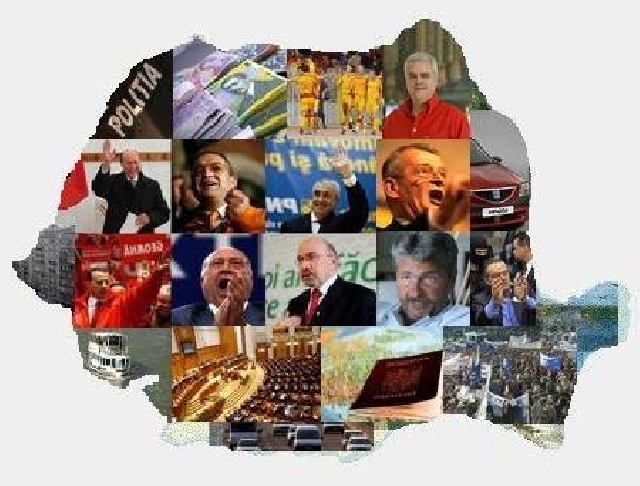The Week in Review, March 10 – 14
A roundup of the week's main stories.

Corina Cristea, 15.03.2014, 14:00
The situation in Ukraine
Romania maintains its concerns over the situation in Ukraine and is doing all in its power, both within European and Euro-Atlantic structures and on a bilateral level, to find a peaceful solution to the crisis facing this neighbouring state. To this end, Romania’s foreign minister Titus Corlatean travelled to Kiev on Monday following an invitation by his Ukrainian counterpart Andrii Deshchytsia. Mr Corlatean, who also had talks with Ukraine’s interim president Olexander Turchinov and prime minister Arseniy Yatsenyuk, told radio Romania’s correspondent in Kiev that his message to the Ukrainian authorities was that Romania fully supports Ukraine’s European aspirations. Romania also believes the referendum on Crimea’s joining Russia is unconstitutional. In Bucharest, president Traian Basescu has reiterated Romania’s unconditional support for Ukraine’s independence, territorial integrity and sovereignty.
The law on green certificates
President Traian Basescu has signed into law the green certificate bill, saying he does not want to be held responsible for an increase in electricity prices. The green certificates are documents attesting that part of the electricity used by a company comes from renewable sources. Prime minister Victor Ponta had previously accused that president Traian Basescu’s delay in signing the bill into law was an attempt to help certain private companies recover their investment in renewable energy sooner, as a result of an increase in electricity prices. According to the prime minister, the bill in question prevents a rise in electricity prices for the industry and the population, because it would temporarily keep at 11% the quota of the total electricity consumption for which the green certificates are awarded. In the absence of this law, the quota would increase to 15% in April, thus generating higher energy prices. Trade unions in the metallurgical sector, which is a high-energy consuming sector, have staged a number of protests in recent days, calling for the bill to be passed into law.
The spoiled meat scandal
A number of people have been arrested in Romania following 100 searches conducted by organised crime prosecutors in Bucharest and other counties. The operation aimed at dismantling two organised crime groups specialising in tax evasion, money laundering, marketing spoiled goods and peddling in influence. According to prosecutors, the groups in question purchased meat and eggs from Holland, Poland, Britain and Germany via a number of companies registered in Romania, without paying the VAT. Subsequently, the VAT was added and the meat was sold to the final beneficiary at prices under market value, thus creating a background of unfair competition for the companies that carry out the same type of commercial activities. Another method of tax evasion was that of purchasing goods from other EU countries, and then selling them on paper to dummy companies in Bulgaria, Hungary or Cyprus, although the meat was actually sold in Romania, without registering the sale in any financial document. According to investigators, the damage exceeds 15 million Euros. Hundreds of tons of meat and meat products have been verified, and 19 tons have been removed from stores. Fines totaling some 100 thousand Euros have been given to those involved.
The Vona Case
The Romanian Interior Ministry has submitted to the Romanian President the documentation needed to declare Vona Gabor, the leader of the Hungarian hard-line party Jobbik, persona non grata on Romanian soil. The announcement was made by Prime Minister Victor Ponta, who said that if the president, as head of the country’s Higher Defense Council, endorses it, the decision will be enforced immediately. The Romanian Government made the decision following the meeting held in Targu Mures, central Romania, on Monday, where several members of the Jobbik party started a conflict with the police. The participants chanted slogans for the territorial autonomy of the so-called Szecklers’ Land, an area in Romania with a predominantly Hungarian speaking population. President Traian Basescu has sent a message to the Hungarian politicians, who are now in full election campaign and will pay visits to Romania, that unless they observe this country’s laws and constitution, they will be expelled. In a message posted on a social networking site, Vona Gabor says that Traian Basescu and Victor Ponta have either been misinformed, or they are carrying out an anti-Hungarian policy.
Tourism Fair
Some 300 travel companies are participating in the 31st Tourism Fair, open in Bucharest until Sunday. Tour operators have come to the fair with discounts of up to 50% for holidays in Romania and abroad. A study conducted by a Romanian market research company shows that one Romanian out of five did not go on holiday last year, and the situation is very likely to become worse this year. Therefore, 22% of Romanians did not go on holidays last year, while this year only half of those interviewed have said they plan on taking a vacation. One third have only planned a holiday for the year 2015. The survey was conducted in February on a sample of 1078 people, aged over 18.




























